This article was medically reviewed by Lacy Windham, MD. Lacy Windham, MD, is a Board-Certified Obstetrician & Gynecologist in Cleveland, Tennessee. Dr. Windham attended medical school at the University of Tennessee Health Science Center in Memphis. Her residency was completed at Eastern Virginia Medical School in Norfolk, Virginia. She was the recipient of multiple awards during her residency training, including Most Outstanding Resident in Maternal Fetal Medicine, Most Outstanding Resident in Oncology, Most Outstanding Resident Overall, and Special Award in Minimally Invasive Surgery.
There are 18 references cited in this article, which can be found at the bottom of the page.
wikiHow marks an article as reader-approved once it receives enough positive feedback. This article received 55 testimonials and 89% of readers who voted found it helpful, earning it our reader-approved status.
This article has been viewed 3,473,975 times.
Urinary tract infections can be extremely uncomfortable, so it is little wonder that people suffering with them are eager to get rid of the infection fast. Prompt, quick treatment is also necessary to prevent the UTI from developing into a more serious condition. UTIs sometimes get better on their own within four of five days, and there are several home treatments you can try, but it is strongly recommended that you get professional medical treatment for the fastest and most thorough treatment.[1]
Steps
Seeking Medical Treatment for a UTI
-
1Recognize the symptoms. A urinary tract infection (UTI) is very common but can be unpleasant and very uncomfortable. UTIs are an infection of your upper urinary tract (kidney and ureters), lower urinary tract (bladder and urethra), or both.[2]
- If you develop a UTI you will likely feel a burning sensation when you urinate as well as a need to urinate often.
- You may also feel pain in your lower abdomen.[3]
-
2Know the different symptoms for an upper or lower urinary tract infection. There are different symptoms for the various infections. It can be useful to think about your symptoms so you can explain them clearly if you need to go to the doctor. Symptoms of lower UTIs include: needing to urinate more often, cloudy or bloody urine, back pain, very unpleasant smelling urine, and generally feeling unwell.[4]
- If you have an upper UTI you may experience a high temperature (over 38 degrees C, or 100 Fahrenheit).
- You may also be nauseous, and shiver uncontrollably.
- Other symptoms include vomiting and diarrhea.[5]
Advertisement -
3Know when to seek medical treatment. 25-40%of mild UTIs will spontaneously resolve, but that still leaves more than half which could be putting themselves at risk for a complication by not seeking medical care. Make an appointment with your doctor straight away if you are experiencing a UTI, and you develop a high temperature, or your symptoms suddenly get worse.[6]
- If you are pregnant or diabetic you should contact your doctor immediately.
- Going to see a doctor will enable you to get a precise diagnosis. What you think is a UTI could be a yeast infection or something else.[7]
- Your doctor will likely have you take a urine test to determine if you have a UTI and what bacteria might be causing it. These cultures usually take 48 hours to complete.
-
4Take a course of antibiotics. UTIs are bacterial infections, and as such, doctor prescribed antibiotics are the most thorough, most recommended treatment to consider. Antibiotics are particularly recommended for women who suffer frequent UTIs. Longer-term courses of antibiotics can help prevent the infection recurring.[8]
- Antibiotics typically prescribed to treat a UTI are nitrofurantoin (branded as Furadantin, Macrobid, or Macrodantin), and sulfamethoxazole with trimethoprim (branded as Bactrim, or Septra).[9] However, ciprofloxacin (known as Cipro), fosfomycin (known as Monurol) and levofloxacin (known as Levaquin) are also prescribed[10] .
- In addition to antibiotics, AZO is an over the counter bladder analgesic that can help.
-
5Complete the course of antibiotics. Take a one- to seven-day course of antibiotics, with your doctor's prescription and advice. Most women are put on a 3-5 day antibiotic. Men might be put on an antibiotic for 7 to 14 days. While symptoms usually clear up around three days after antibiotic treatment, it can take up to five days for all the bacteria in your urinary tract to die off.[11] It may take even longer for men.
- It is vital that you finish all of the antibiotics that your doctor prescribes unless your doctor tells you otherwise.
- If you stop taking your antibiotics before the course is over, you’re not allowing the antibiotics to completely kill the bacteria.[12]
- If your symptoms continue after you have taken all your antibiotics, or you don’t feel any better after a few days, contact your doctor again.[13]
-
6Be aware of potential complications. There are potentially serious complications from a severe UTI, which could lead to kidney failure or blood poisoning. These are not common, and they usually only affect people with a pre-existing health problem, such as diabetes. If you have a weakened immune system, you are more susceptible to complications and infections.[14]
- Pregnant women with UTIs are at risk for life-threatening complications and should always be examined by a physician.
- Men who have recurrent UTIs are at risk of developing inflammation of the prostate, known as prostatitis.[15]
- You may require hospital treatment for a severe upper UTI, or if there are complications.
- This will still involve antibiotics, but you will be closely monitored and perhaps put on a drip to keep you hydrated.[16]
Alleviating a UTI at Home
-
1Drink plenty of water. Antibiotics are the only way to really treat a UTI, but given that they often pass in a few days, there are things you can do to help ease the symptoms and make it less likely for the infection to recur. The most straightforward of these is just to drink plenty of water throughout the day, approximately a glass every hour.[17]
- When you urinate your bladder is cleansed, and this can help flush out bacteria.[18]
- Do not hold in your urine. Holding in your urine can cause the UTI to get worse, by encouraging the bacteria to breed.
-
2Try some cranberry juice. Drinking cranberry juice is often cited as a home remedy for a UTI. While there is little evidence that cranberry juice can actually fight an infection, it may help prevent one.[19] If you have recurring UTIs try taking higher-strength cranberry capsules.[20] As with water, drinking plenty of fluids helps you to flush out and cleanse your system.
- Do not take cranberry juice if you or your family has a history of kidney infection.
- You should not take cranberry juice capsules if you are taking blood-thinning medication.[21]
- There is no medically specified dose of cranberry juice to take, as its effectiveness is not proven.[22]
- One study found positive results for women who took either one tablet of concentrated cranberry juice a day, or drank 8oz of unsweetened cranberry juice three times a day for a year.[23]
-
3Take vitamin C supplements. Taking vitamin C supplements when you first start to feel the symptoms of a UTI can help to limit a developing infection. The vitamin C helps to acidify the urine, which discourages the bacteria from colonizing your bladder while strengthening your body’s immune defences.[24]
- Try a 500mg dose every hour, but stop if your bowel movements become loose.[25]
- You can combine vitamin C supplements with mild anti-inflammatory teas, such as goldenseal, echinacea, and nettle.
- If the symptoms persist after a few days, go to the doctor regardless.
-
4Avoid consuming irritants. There are certain things you consume which can be irritants, the effects of which are heightened when you have a UTI. The two biggest culprits to avoid are coffee and alcohol. Not only are they irritants, but they also dehydrate you which can make it more difficult to flush the bacteria from your urinary tract.[26]
- You should also avoid soft drinks that contain citrus juices until after your UTI has cleared.[27]
- Restricting caffeine and alcohol in your diet can also be used as a preventative measure against future UTIs if you are susceptible to these infections.
Staying Hygienic and Healthy
-
1Maintain excellent urinary hygiene. While proper hygiene is generally considered a preventative measure against urinary tract infections, it is also an essential part of getting rid of the infection sooner. The more you can incorporate healthy and hygienic practices, the better off you will be[28]
- Wipe from the front to the back after using the bathroom. This is especially important for women, who should always wipe from front to back.[29]
-
2Clean before and after sex. Sexual intercourse is one of how bacteria can be introduced into a person's urethra, eventually ending up in the bladder.[30] To help prevent this, the genital and anal areas should be cleaned before and after sexual activity. People with vaginas should especially urinate before and after sexual activity. Avoid body lotions and massage oils as a lubricant unless it says it's safe. These have chemicals that can lead to an infection.
- Urinating after intercourse empties the bladder and flushes out bacteria.
- UTIs are not infectious, and you cannot catch one from somebody else.[31]
-
3Wear the right clothing. Certain clothes can make it more difficult to get rid of your UTI. Tight-fitting underwear which is made of non-breathable materials can enable a moist and bacteria-friendly environment to develop adjacent to the bladder. For these reasons, go for cotton underwear, rather than non-absorbent fabrics like nylon.[32]
- Avoid tight-fitting pants or shorts. Tight garments can cause sweat and moisture to build up, creating an ideal breeding ground for bacteria.
- Wearing the right underwear can help prevent infections developing or worsening, but it won’t cure them.
Expert Q&A
Did you know you can get expert answers for this article?
Unlock expert answers by supporting wikiHow
-
QuestionIs Parkinson's disease a contributing factor in loss of urine control?
 Daniel Wozniczka, MD, MPHDr. Wozniczka is an Internal Medicine Physician, who is focused on the intersection of medicine, economics, and policy. He has global healthcare experience in Sub Saharan Africa, Eastern Europe, and Southeast Asia. He serves currently as a Lieutenant Commander in the U.S. Public Health Service and a Medical Officer for the Epidemic Intelligence Service in the CDC. He completed his MD at Jagiellonian University in 2014, and also holds an MBA and Masters in Public Health from the University of Illinois at Chicago.
Daniel Wozniczka, MD, MPHDr. Wozniczka is an Internal Medicine Physician, who is focused on the intersection of medicine, economics, and policy. He has global healthcare experience in Sub Saharan Africa, Eastern Europe, and Southeast Asia. He serves currently as a Lieutenant Commander in the U.S. Public Health Service and a Medical Officer for the Epidemic Intelligence Service in the CDC. He completed his MD at Jagiellonian University in 2014, and also holds an MBA and Masters in Public Health from the University of Illinois at Chicago.
Internal Medicine Physician
-
QuestionAre cefalexin and duvadilan ok for the pregnant with u.t.i?
 Lacy Windham, MDLacy Windham, MD, is a Board-Certified Obstetrician & Gynecologist in Cleveland, Tennessee. Dr. Windham attended medical school at the University of Tennessee Health Science Center in Memphis. Her residency was completed at Eastern Virginia Medical School in Norfolk, Virginia. She was the recipient of multiple awards during her residency training, including Most Outstanding Resident in Maternal Fetal Medicine, Most Outstanding Resident in Oncology, Most Outstanding Resident Overall, and Special Award in Minimally Invasive Surgery.
Lacy Windham, MDLacy Windham, MD, is a Board-Certified Obstetrician & Gynecologist in Cleveland, Tennessee. Dr. Windham attended medical school at the University of Tennessee Health Science Center in Memphis. Her residency was completed at Eastern Virginia Medical School in Norfolk, Virginia. She was the recipient of multiple awards during her residency training, including Most Outstanding Resident in Maternal Fetal Medicine, Most Outstanding Resident in Oncology, Most Outstanding Resident Overall, and Special Award in Minimally Invasive Surgery.
Board Certified Obstetrician & Gynecologist
-
QuestionHow do I get rid of a UTI if I'm pregnant?
 Robert Dhir, MDDr. Robert Dhir is a board certified Urologist, Urological Surgeon, and the Founder of HTX Urology in Houston, Texas. With over 10 years of experience, Dr. Dhir’s expertise includes minimally-invasive treatments for enlarged prostate (UroLift), kidney stone disease, surgical management of urological cancers, and men’s health (erectile dysfunction, low testosterone, and infertility). His practice has been named a Center of Excellence for the UroLift procedure, and is a pioneer in non-surgical procedures for ED using his patented Wave Therapy. He earned his undergraduate and medical degrees from Georgetown University and was awarded honors in pre-medical studies, urology, orthopedics, and ophthalmology. Dr. Dhir served as chief resident during his urological surgical residency at University of Texas at Houston / MD Anderson Cancer Center in addition to completing his internship in general surgery. Dr. Dhir was voted Top Doctor in Urology for 2018 to 2019, one of the top three Best Rated Urologists in 2019 & 2020 for Houston Texas, and Texas Monthly has named him to the 2019 & 2020 Texas Super Doctors Rising Stars list.
Robert Dhir, MDDr. Robert Dhir is a board certified Urologist, Urological Surgeon, and the Founder of HTX Urology in Houston, Texas. With over 10 years of experience, Dr. Dhir’s expertise includes minimally-invasive treatments for enlarged prostate (UroLift), kidney stone disease, surgical management of urological cancers, and men’s health (erectile dysfunction, low testosterone, and infertility). His practice has been named a Center of Excellence for the UroLift procedure, and is a pioneer in non-surgical procedures for ED using his patented Wave Therapy. He earned his undergraduate and medical degrees from Georgetown University and was awarded honors in pre-medical studies, urology, orthopedics, and ophthalmology. Dr. Dhir served as chief resident during his urological surgical residency at University of Texas at Houston / MD Anderson Cancer Center in addition to completing his internship in general surgery. Dr. Dhir was voted Top Doctor in Urology for 2018 to 2019, one of the top three Best Rated Urologists in 2019 & 2020 for Houston Texas, and Texas Monthly has named him to the 2019 & 2020 Texas Super Doctors Rising Stars list.
Board Certified Urologist & Urological Surgeon You must get immediate medical attention if you have a urinary tract infection while you're pregnant. Failure to treat a UTI during pregnancy could lead to early delivery or even spontaneous abortion. Also, certain antibiotics can harm your fetus, so do not self-start antibiotics that you may have kept in your home from previous infections.
You must get immediate medical attention if you have a urinary tract infection while you're pregnant. Failure to treat a UTI during pregnancy could lead to early delivery or even spontaneous abortion. Also, certain antibiotics can harm your fetus, so do not self-start antibiotics that you may have kept in your home from previous infections.
Warnings
- If you do not notice a dramatic improvement in your symptoms after 24 to 36 hours of home treatment, you need to seek out professional medical help.⧼thumbs_response⧽
- If home treatment does seem to work, you should still consider having a professional urine test taken to double-check for remaining bacteria.⧼thumbs_response⧽
- Even uncomplicated UTIs can develop into fatal kidney infections if allowed to fester for too long.⧼thumbs_response⧽
Things You'll Need
- Cranberry juice
- Water
- Vitamin C
- Goldenseal, echinacea, and nettle supplements
- Cotton undergarments
- Loose-fitting underwear or trousers/pants
- Antibiotics
References
- ↑ http://www.nhs.uk/Conditions/Urinary-tract-infection-adults/Pages/Introduction.aspx
- ↑ http://www.nhs.uk/Conditions/Urinary-tract-infection-adults/Pages/Symptoms.aspx
- ↑ http://www.nhs.uk/Conditions/Urinary-tract-infection-adults/Pages/Introduction.aspx
- ↑ http://www.nhs.uk/Conditions/Urinary-tract-infection-adults/Pages/Symptoms.aspx
- ↑ http://www.nhs.uk/Conditions/Urinary-tract-infection-adults/Pages/Symptoms.aspx
- ↑ http://www.nhs.uk/Conditions/Urinary-tract-infection-adults/Pages/Introduction.aspx
- ↑ http://www.webmd.com/news/20130604/can-you-skip-antibiotics-for-urinary-tract-infection?page=2
- ↑ http://www.nhs.uk/Conditions/Urinary-tract-infection-adults/Pages/Introduction.aspx
- ↑ http://www.webmd.com/a-to-z-guides/antibiotics-for-urinary-tract-infections-utis
- ↑ http://www.webmd.com/a-to-z-guides/antibiotics-for-urinary-tract-infections-utis
- ↑ http://www.ncbi.nlm.nih.gov/pubmedhealth/PMH0005010/
- ↑ http://kidshealth.org/teen/infections/common/uti.html#
- ↑ http://kidshealth.org/teen/infections/common/uti.html#
- ↑ http://www.nhs.uk/Conditions/Urinary-tract-infection-adults/Pages/Introduction.aspx
- ↑ http://www.nhs.uk/Conditions/Urinary-tract-infection-adults/Pages/Introduction.aspx
- ↑ http://www.nhs.uk/Conditions/Urinary-tract-infection-adults/Pages/Treatment.aspx
- ↑ http://www.nytimes.com/health/guides/disease/urinary-tract-infection/overview.html
- ↑ http://www.newhealthguide.org/How-To-Get-Rid-Of-A-Uti.html
- ↑ http://www.webmd.com/news/20130604/can-you-skip-antibiotics-for-urinary-tract-infection?page=2
- ↑ http://www.choosewellmanchester.org.uk/self-care/self-care-information-for-adults/urinary-tract-infections/
- ↑ http://www.choosewellmanchester.org.uk/self-care/self-care-information-for-adults/urinary-tract-infections/
- ↑ http://www.webmd.com/urinary-incontinence-oab/womens-guide/cranberries-for-uti-protection?page=2
- ↑ http://www.webmd.com/urinary-incontinence-oab/womens-guide/cranberries-for-uti-protection
- ↑ http://www.readersdigest.ca/health/how-get-rid-urinary-tract-infection
- ↑ http://www.readersdigest.ca/health/how-get-rid-urinary-tract-infection
- ↑ http://www.mayoclinic.com/health/urinary-tract-infection/DS00286/DSECTION=lifestyle-and-home-remedies
- ↑ http://www.mayoclinic.com/health/urinary-tract-infection/DS00286/DSECTION=lifestyle-and-home-remedies
- ↑ http://www.nlm.nih.gov/medlineplus/ency/article/000521.htm
- ↑ http://emedicine.medscape.com/article/1958794-overview
- ↑ http://kidshealth.org/teen/infections/common/uti.html#
- ↑ http://kidshealth.org/teen/infections/common/uti.html#
- ↑ http://emedicine.medscape.com/article/1958794-overview
About This Article
To get rid of a UTI fast, drink plenty of water throughout the day, which will help your body flush out bacteria because you’ll be urinating more. If you notice the symptoms in the early stages of the UTI, try taking vitamin C supplements, which help fight bacteria growth and reduce the symptoms of a UTI. You should also avoid consuming coffee and alcohol, since these are irritants that can make your symptoms worse. Make sure to see a doctor if your symptoms worsen or if you're pregnant, so they can prescribe you antibiotics to clear up the infection. Complete the course of antibiotics even if you think the infection has gone away, because it can flare up again if you're not fully cured. For tips on how to prevent UTIs with good hygiene, read on!
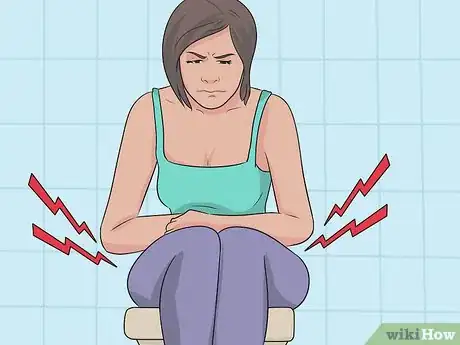
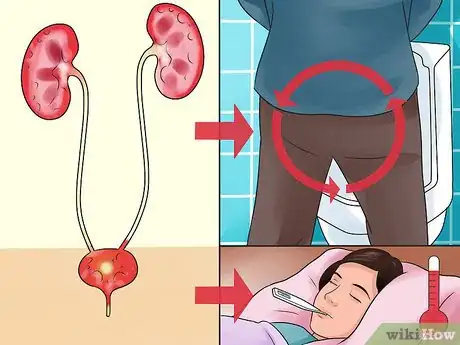
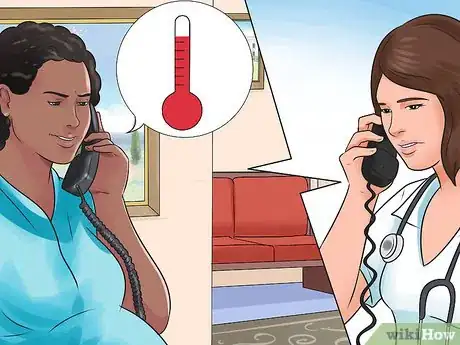
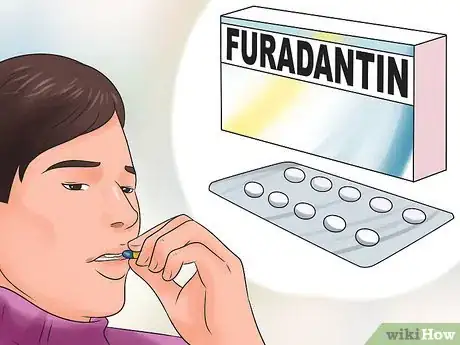
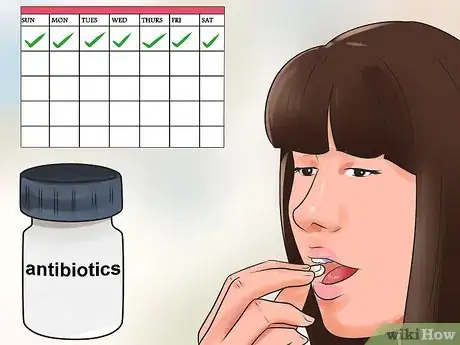





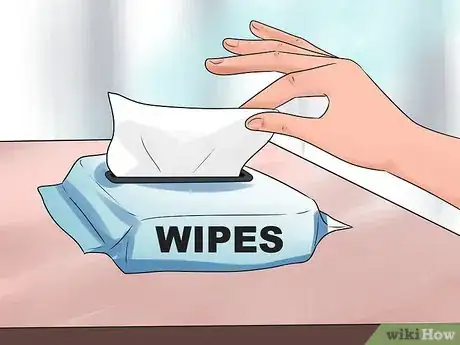
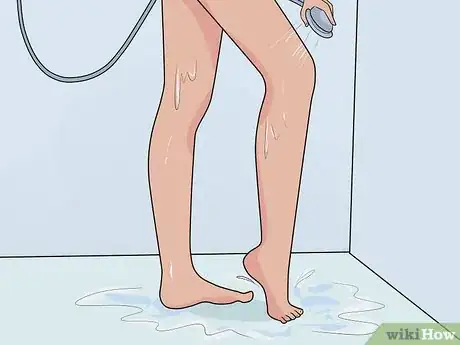
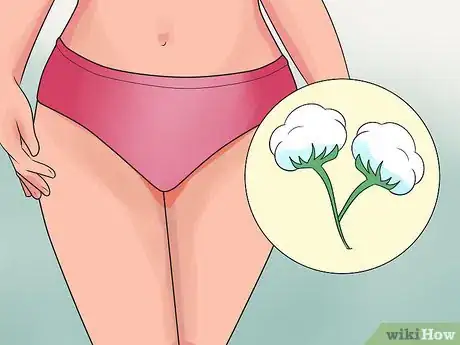


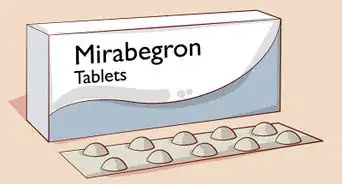
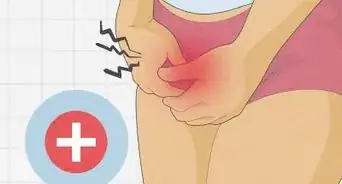





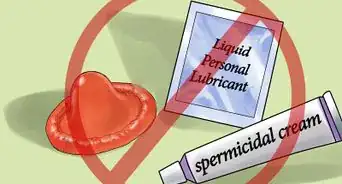
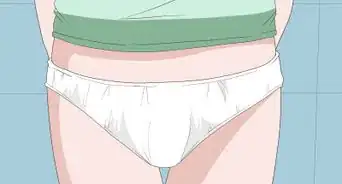
-Step-14.webp)













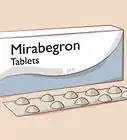
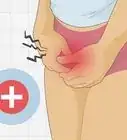



































Medical Disclaimer
The content of this article is not intended to be a substitute for professional medical advice, examination, diagnosis, or treatment. You should always contact your doctor or other qualified healthcare professional before starting, changing, or stopping any kind of health treatment.
Read More...